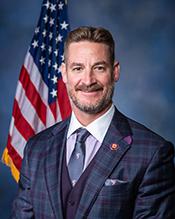0
0
0
American Confidence in Elections: District of Columbia Voter Identification Act
12/15/2023, 4:00 PM
Summary of Bill HR 4488
Bill 118 hr 4488, also known as the American Confidence in Elections: District of Columbia Voter Identification Act, aims to address concerns about voter identification in the District of Columbia. The bill requires voters in the District of Columbia to present a valid form of identification in order to vote in federal elections.
The bill specifies that acceptable forms of identification include a driver's license, state-issued identification card, passport, or other government-issued photo identification. Voters who do not have one of these forms of identification can also use a utility bill, bank statement, or other document that shows their name and address.
Proponents of the bill argue that requiring voter identification helps prevent voter fraud and ensures the integrity of the electoral process. They believe that this measure will increase confidence in elections and protect the rights of legitimate voters. Opponents of the bill argue that voter identification requirements can disenfranchise certain groups of voters, such as low-income individuals, minorities, and the elderly, who may have difficulty obtaining the necessary identification. They argue that voter fraud is rare and that the bill is unnecessary and could suppress voter turnout. Overall, the American Confidence in Elections: District of Columbia Voter Identification Act is a controversial piece of legislation that seeks to address concerns about voter identification in the District of Columbia. It remains to be seen how this bill will impact voter turnout and the integrity of elections in the District of Columbia.
The bill specifies that acceptable forms of identification include a driver's license, state-issued identification card, passport, or other government-issued photo identification. Voters who do not have one of these forms of identification can also use a utility bill, bank statement, or other document that shows their name and address.
Proponents of the bill argue that requiring voter identification helps prevent voter fraud and ensures the integrity of the electoral process. They believe that this measure will increase confidence in elections and protect the rights of legitimate voters. Opponents of the bill argue that voter identification requirements can disenfranchise certain groups of voters, such as low-income individuals, minorities, and the elderly, who may have difficulty obtaining the necessary identification. They argue that voter fraud is rare and that the bill is unnecessary and could suppress voter turnout. Overall, the American Confidence in Elections: District of Columbia Voter Identification Act is a controversial piece of legislation that seeks to address concerns about voter identification in the District of Columbia. It remains to be seen how this bill will impact voter turnout and the integrity of elections in the District of Columbia.
Read the Full Bill
Current Status of Bill HR 4488
Bill HR 4488 is currently in the status of Bill Introduced since July 6, 2023. Bill HR 4488 was introduced during Congress 118 and was introduced to the House on July 6, 2023. Bill HR 4488's most recent activity was Referred to the House Committee on House Administration. as of July 6, 2023
Bipartisan Support of Bill HR 4488
Total Number of Sponsors
1Democrat Sponsors
0Republican Sponsors
1Unaffiliated Sponsors
0Total Number of Cosponsors
4Democrat Cosponsors
0Republican Cosponsors
4Unaffiliated Cosponsors
0Policy Area and Potential Impact of Bill HR 4488
Primary Policy Focus
Government Operations and PoliticsAlternate Title(s) of Bill HR 4488
American Confidence in Elections: District of Columbia Voter Identification Act
American Confidence in Elections: District of Columbia Voter Identification Act
To amend the Help America Vote Act of 2002 to establish certain photo identification requirements for voting in District of Columbia elections and to require proof of citizenship to register to vote in District of Columbia elections, and for other purposes.
Comments
Sponsors and Cosponsors of HR 4488
Latest Bills
Providing amounts for the expenses of the Committee on Ethics in the One Hundred Nineteenth Congress.
Bill HRES 131December 12, 2025
Providing for congressional disapproval under chapter 8 of title 5, United States Code, of the rule submitted by the Bureau of Land Management relating to "Central Yukon Record of Decision and Approved Resource Management Plan".
Bill HJRES 106December 12, 2025
Expressing the sense of the House of Representatives in condemning the Government of the People's Republic of China for its harassment and efforts to intimidate American citizens and other individuals on United States soil with the goal of suppressing speech and narratives the People's Republic of China finds unwelcome.
Bill HRES 130December 12, 2025
Providing for congressional disapproval under chapter 8 of title 5, United States Code, of the rule submitted by the Bureau of Land Management relating to "North Dakota Field Office Record of Decision and Approved Resource Management Plan".
Bill HJRES 105December 12, 2025
Providing for congressional disapproval under chapter 8 of title 5, United States Code, of the rule submitted by the Bureau of Land Management relating to "Miles City Field Office Record of Decision and Approved Resource Management Plan Amendment".
Bill HJRES 104December 12, 2025
Providing amounts for the expenses of the Select Committee on the Strategic Competition Between the United States and the Chinese Communist Party in the One Hundred Nineteenth Congress.
Bill HRES 104December 12, 2025
Critical Access for Veterans Care Act
Bill S 1868December 12, 2025
OATH Act of 2025
Bill S 1665December 12, 2025
A bill to extend the authority for modifications to the Second Division Memorial in the District of Columbia.
Bill S 1353December 12, 2025
Saving Our Veterans Lives Act of 2025
Bill S 926December 12, 2025
ACE Act
Bill HR 4563January 17, 2025
Ensuring Faith in Our Elections Act
Bill HR 4494December 15, 2023
American Confidence in Elections: District of Columbia Citizen Voter Act
Bill HR 4396March 18, 2024


